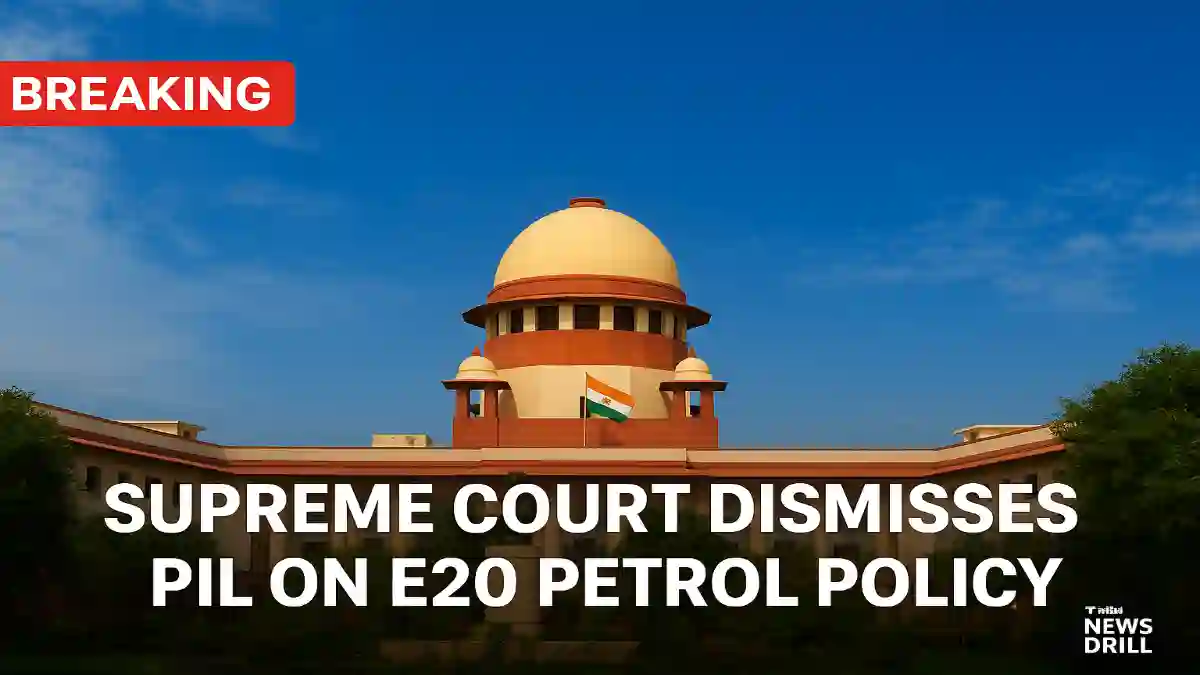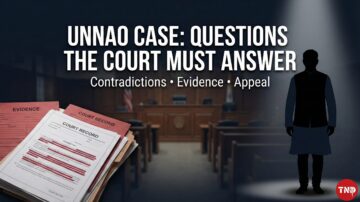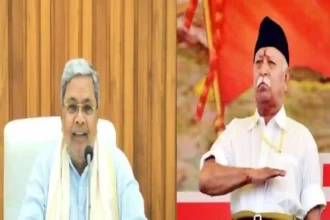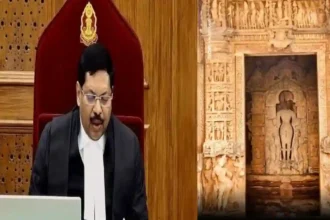
The Supreme Court on Monday dismissed a Public Interest Litigation (PIL) challenging the Union Government’s E20 petrol policy, which mandates the use of petrol blended with 20% ethanol. The petition sought the option for consumers to purchase fuel without ethanol content, raising concerns about vehicle compatibility, fuel efficiency, and the lack of prior notice before implementation.
PIL Against E20 Petrol Policy
The petitioner argued that the E20 petrol policy was implemented without transparency and without giving consumers the choice of non-ethanol blended fuel. Senior Advocate Shadan Farasat, appearing for the petitioner, submitted that:
- Only E20 petrol is now available at pumps, without informing consumers.
- Most vehicles currently on Indian roads are not manufactured to be compatible with E20.
- NITI Aayog reports suggest that vehicles are being damaged due to E20 usage.
- There is a noticeable drop in fuel efficiency and engine performance.
- Ethanol blended petrol can cause corrosion and long term damage to vehicle components.
The plea emphasized that while the petitioner was not against the blending of ethanol per se, consumers must be given a choice between regular petrol and E20 petrol, along with clear labeling at petrol stations.
Attorney General Opposes the Petition
Attorney General for India (AGI), appearing on behalf of the Union Government, strongly opposed the plea. He argued that the petitioner was acting as a “name lender” for a larger lobby working against the government’s ethanol blending initiatives. According to the AGI, the government had carefully considered all aspects before rolling out the E20 petrol policy, including environmental benefits and long term energy security.
Supreme Court’s Observations and Dismissal
The bench led by Chief Justice of India (CJI) heard the matter and noted the government’s stand. After brief deliberations, the Court dismissed the PIL, siding with the Attorney General’s contention that the policy was not arbitrary and had been formulated after due consideration.
The dismissal means that the E20 petrol policy will remain in force, and petrol pumps across the country will continue to sell E20 as the standard option.
Concerns of Vehicle Owners
Despite the dismissal, the concerns raised in the PIL reflect a growing unease among vehicle owners. Industry experts and automobile associations have warned that:
- Vehicles manufactured before 2023 may not be fully compatible with E20 fuel.
- Ethanol has a lower calorific value than petrol, leading to reduced mileage.
- Ethanol attracts water, which may cause rusting and corrosion in fuel systems.
- Repair and maintenance costs may increase for older vehicles not designed for higher ethanol blends.
The absence of clear labeling at petrol pumps has further fueled confusion among consumers, many of whom are unaware of whether their vehicles can handle E20 fuel safely.
Government’s Push for Ethanol Blending
The E20 petrol policy is part of India’s broader National Biofuel Policy, which aims to reduce dependence on fossil fuels, cut carbon emissions, and promote the use of renewable energy. Ethanol, derived from crops like sugarcane and maize, is seen as a greener alternative that can help India meet its international climate commitments.
The government has set ambitious targets to increase ethanol blending in petrol to 20% by 2025. The initiative is also expected to reduce the country’s massive oil import bill and provide additional income streams for farmers through ethanol production.
Balancing Environment and Consumer Interests
While the E20 petrol policy aligns with global climate goals, the key challenge remains ensuring that the transition does not adversely affect consumers. Automobile manufacturers are gradually rolling out E20 compatible vehicles, but the transition for millions of existing vehicles remains unresolved.
Experts suggest that a dual fuel system where both regular petrol and E20 petrol are available at pumps could ease the transition and protect consumers from unexpected costs. Clear labeling and awareness campaigns are also seen as critical measures to avoid confusion and disputes.
Final Thought
The Supreme Court’s dismissal of the PIL ensures that the E20 petrol policy remains the law of the land. However, the debate surrounding its impact on vehicles, fuel efficiency, and consumer rights is far from over. As India moves toward greener energy alternatives, balancing environmental priorities with consumer protection will remain a key test for policymakers.

















